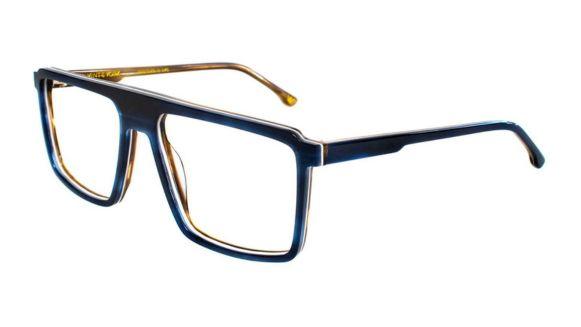
The Connection Between Eye Health and Stress
Stress impacts our bodies in many ways. It can leave our minds racing with thoughts and make our hearts feel like they're going to beat right out of our chest as we anticipate what's to come. Additionally, stress can impact eye health by increasing the risk of eyestrain, eye twitching, and more. Learn about the connection between eye health and stress, plus ways to reduce stress and care for your eyes.
Ways Stress Impacts Eye Health
When we experience stress, our bodies undergo a series of physiological changes, including an increase in heart rate and blood pressure. These changes can also affect our eyes, in some of the following ways:
- Tunnel vision
- Eye strain
- Increase in eye pressure
- Eye twitching
- Dry eye
Each of these bodily responses to stress can affect our eyesight in the short term and potentially impact long-term eye health if left untreated. Delve into the details below on the ways stress can lead to these eye health conditions.
Tunnel Vision
Tunnel vision, or the loss of peripheral vision can be disorienting or even scary if it’s never happened to you before. Experiencing tunnel vision is like wearing blinders on the sides of your head as you can only see what’s in front of you and not with your peripheral vision; our peripheral vision aids with special awareness. Some of us experience momentary tunnel vision when our stress levels peak because our body goes into fight or flight mode.
Eye Strain
Many of us have spent minutes or hours with our eyes locked on a screen as we focus on a task. After doing this, our eyes and forehead may ache a little. This typically occurs when the ocular muscle remain tense for long periods. Frequent or prolonged episodes may result in headaches and difficulty focusing, further exacerbating stress's toll on the mind and body.
Increase in Eye Pressure
Elevated stress levels can cause a spike in intraocular pressure, particularly concerning individuals already at risk or diagnosed with conditions like glaucoma. This undue pressure within the eyes can contribute to pain and, in severe cases, lead to vision loss.
Eye Twitching
Many of us dismiss eye twitching as a benign annoyance or consider it as one of our bodies’ natural responses to stress. While it is natural, the involuntary muscle contractions are frequently linked to fatigue. Having your eye twitch during stressful moments is a physical reminder that your body is working harder than necessary and that it’s time to take a break.
Dry Eyes
Stress-induced dry eye occurs when the lacrimal glands, responsible for producing tears, are compromised by heightened levels of stress hormones. The resulting decrease in tear production can lead to chronic dryness, redness, and a feeling of grittiness, affecting comfort and clear vision.
Moreover, dry eyes can lead to momentary blurred vision as our eyes lack the needed lubrication produced by tears or blinking.
Ways of Reducing Stress
Understanding the connection between eye health and stress is the first step in managing the adverse effects of stress on your eyes; it gives you a crucial reason to reduce stress. The more we learn to cope with our stress, the easier it will be to reduce its impact on our eyes and overall well-being.
Practice Deep Breathing
Deep breathing is a lot easier said than done, especially if you've never done it. With each breath, you fill your lungs entirely. This differs from a normal shallow breath, where you only fill a portion of your lungs.
Practice deep breathing, inhaling for a count of 4, holding for a count of 7, and exhaling for a count of 8. This technique can help reduce stress levels and promote relaxation since it triggers the parasympathetic nervous system, which helps slow down your heart rate and relaxes your muscles.
Take Breaks from Digital Screens
During times of stress, try to schedule small moments of rest for yourself, even if it's just a few minutes. Taking regular breaks can help reduce eye strain and the discomfort that comes with it.
Additionally, adhere to the 20-20-20 rule when you use a digital screen as this can spare your eyes a significant amount of strain and tension. This means taking a 20-second break to view something 20 feet away every 20 minutes.
Maintain a Healthy Lifestyle
A holistic approach to stress management involves maintaining a lifestyle that nurtures the body and mind. Getting regular exercise, quality sleep, and a well-balanced diet often help reduce stress levels and promote overall well-being.
To further promote eye health, consider eating foods like leafy greens, fatty fish, and citrus fruits, which are rich in eye-nourishing nutrients such as vitamins C and E, zinc, lutein, zeaxanthin, and omega-3 fatty acids.
Prioritize Proper Eye Health
Reducing your stress levels is half of the equation. You should also prioritize proper eye health. You can do this by doing the following:
- Keep your eyes lubricated
- Annually visit the ophthalmologist
- Wear necessary eyewear
Doing these things can help you keep your eye health in check and prevent any long-term damage from stress. Below, we've provided information on each of these eye-care tips to help you better understand how to keep your eyes healthy.
Keep Your Eyes Lubricated
Stress can contribute to dry eyes by affecting tear production, which can cause discomfort. To prevent this, blink regularly while using screens or reading for extended periods. Making a conscious effort to blink can be challenging, especially when stressed. If this occurs, use eye drops as needed.
Annually Visit the Ophthalmologist
Scheduling regular appointments with an ophthalmologist is an act of commitment to your ocular well-being. These specialists can identify symptoms of stress or underlying issues affecting your eyesight, providing invaluable advice and care tailored to your unique needs.
Wear Needed Eyewear
Every type of eyewear exists for a reason. Sunglasses help block UV rays from damaging our eyes while blue light glasses help reduce the strain caused by staring at a digital screen for prolonged periods. Moreover, prescription lenses help many of us see more clearly, which can help reduce eye strain.
Shop at Vint & York
Prioritizing stress-reducing practices encourages better eye health which can benefit our overall well-being. Vint & York sells stylish glasses frames that you'll love wearing. We have an assortment of stylish glasses for men and beautiful options for women. Browse our collection today to find eyewear that will help you keep you looking stylish and your eyes healthy.










Leave a comment
This site is protected by hCaptcha and the hCaptcha Privacy Policy and Terms of Service apply.